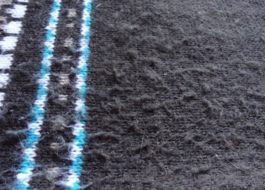What is delicate wash? What is it for?
 Every day, when going for a walk or vacation, we all want to look perfect and good. And ironed clothes in bright, rich colors are also an important part of our overall appearance. In order for your
Every day, when going for a walk or vacation, we all want to look perfect and good. And ironed clothes in bright, rich colors are also an important part of our overall appearance. In order for your
looking good has become a reality; you don’t have to change your wardrobe every month because of faded T-shirts or sweaters. The main thing is to know and follow the washing rules for all types of fabrics.
This article will tell you the answer to the question: “How to wash woolen and silk items, clothes that are based on an admixture of synthetic material? As well as cashmere fabric, knitwear and modern materials, which are mainly used for tailoring today. Including one that is made specifically for sports.”
To wash delicate items, it is best to purchase special liquid products. It will be better if you completely avoid detergents that contain enzymes. When using such substances, there is a risk that things will lose their original appearance or completely deteriorate.
The exception is those powdered products that are specially adapted and intended specifically for washing items made of wool or silk. The composition of these substances necessarily includes lanolin and many other components responsible for a softer wash. And preventing the deterioration of the characteristics of clothes made from delicate fabrics.
Useful tips
 In order to preserve the original appearance of your clothes, you don’t need to invent anything supernatural.
In order to preserve the original appearance of your clothes, you don’t need to invent anything supernatural.
Perhaps you will find some useful advice in this matter useful and helpful, the observance of which sometimes even exceeds expectations:
- Surely, you have long known the golden rule of washing, not only delicates, but also any other things: “White and colored clothes are washed separately.”
- When choosing a mode for washing woolen items or washing them by hand, it is important to strictly monitor the time they spend in water. Staying in liquid for too long can cause them to stretch out and lose their original shape.
- Clothes made from delicate fabrics cannot withstand high-temperature washing. The maximum permissible temperature for washing is 30-40 degrees.
- If you prefer machine washing, then do not neglect the rules and tips indicated on the mode control panel. Only the delicate washing cycle is suitable for you. At the same time, it is not recommended that the tank of the machine be filled with water to the maximum and it is forbidden to use a spin cycle, since it pulls things out extremely strongly.
- When washing by hand, do not be zealous and rub clothes with force, this can damage the structure of the fabric, giving it an improper appearance.
- Items made from various “finicky” materials are not so much afraid of the washing itself as of the spinning and drying process. Wool, cashmere and silk items should not be wrung out. All water contained in them should drain off on its own after washing.
- Delicate items are ironed strictly from the reverse side, using the “steaming” mode. Woolen items deserve special attention; they can only be ironed with gauze moistened with water placed on top of the clothing.
Secrets of the beauty and durability of especially delicate fabrics
Lace is considered the most difficult and fastidious to care for, since its fine weaving and patterns of extraordinary beauty require especially careful care.
In order for washing to bring the desired result and at the same time the complex patterned weaving completely retains its shape, you will need to soak the lace product in washing soda at the rate of ½ tbsp. l. for ½ bucket of water.
The soaking time should be approximately 2.5-3 hours. When the lace is particularly delicately woven, soak and wash it by placing it in a special bag designed for safe washing of delicate items or in a cotton pillowcase.
It is worth noting an important washing feature inherent in openwork napkins. Before soaking them or starting to wash them, the napkins are sewn with large stitches to any white fabric. By following this simple washing rule, you will keep your napkins in shape for a long time. After washing, it is recommended to iron the openwork product, but the fabric to which they were sewn is not removed.
From generation to generation
 Today, the household chemicals market is saturated with a huge number of special products for both washing and rinsing delicate fabrics. However, there are many folk remedies that were invented and successfully used by our grandmothers, and then, passed down from generation to generation, have survived to this day. Moreover, these products are absolutely not inferior to the chemicals sold in the store. And in some cases, they even surpass modern analogues. Here are a number of simple but effective folk
Today, the household chemicals market is saturated with a huge number of special products for both washing and rinsing delicate fabrics. However, there are many folk remedies that were invented and successfully used by our grandmothers, and then, passed down from generation to generation, have survived to this day. Moreover, these products are absolutely not inferior to the chemicals sold in the store. And in some cases, they even surpass modern analogues. Here are a number of simple but effective folk
means:
- To make the lace snow-white, add hydrogen peroxide to the container of water in which you plan to rinse the product at the rate of ½ cup per 5 liters of water.
- During the last rinse of clothes, add 1 tbsp to a bowl of water. l. glycerin, which will prevent the product from shrinking. In addition, you will be pleasantly surprised by the softness and delicacy of washed clothes.
- If, after washing a silk item, you don’t have time to iron it, don’t get upset ahead of time. Place it in a plastic bag and you can safely leave it in the refrigerator for a couple of days.
As you can see, nothing is impossible, including keeping your favorite things looking great. So feel free to go shopping and wash your delicate items with pleasure, without much hassle.
Interesting:
Reader comments
- Share your opinion - leave a comment





















Add a comment